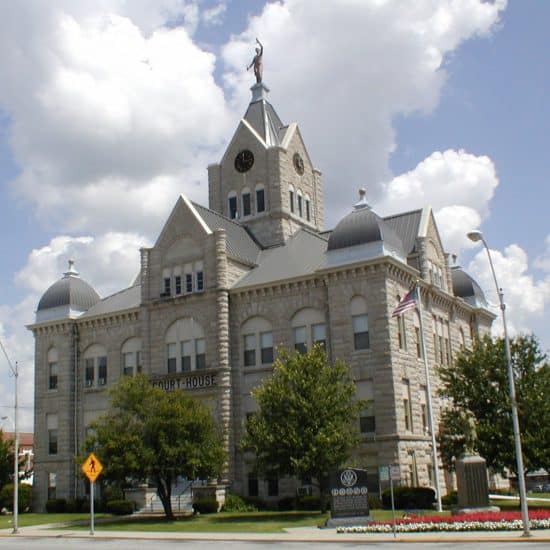As Missouri Baptist Convention leaders sought to justify their decision to sue five Missouri Baptist institutions, they made some promises to messengers and other Missouri Baptists. Fifteen years have passed since the start of the MBC’s litigation against the Missouri Baptist Foundation, Missouri Baptist University, The Baptist Home, Windermere Baptist Conference Center and Word&Way — with the suits against MBU and TBH still unresolved. How have two of those early key promises fared with the passage of time?
Suing Individuals
As the MBC considered filing its initial lawsuit, one biblical passage quickly arose in discussions on the floor of annual meetings, in Baptist publications, in Sunday School classrooms and elsewhere: 1 Corinthians 6. In the passage, Paul condemns lawsuits among fellow believers as they took each other “to court before the unrighteous.” He added that “to have lawsuits at all with one another is already a defeat for you.”
MBC leaders argued that Paul’s passage only dealt with individuals and therefore did not prohibit suing corporations like the five institutions. During the MBC’s Legal Task Force video report at the 2002 annual meeting just two months after the filing of the first lawsuit, Gary Taylor, then-chair of the Legal Task Force (now known as the Agency Restoration Group), cited a teaching by Christian money manager Larry Burkett that although a Christian should not sue another individual believer, it could be biblically permissible to sue corporations. Taylor expressed his belief that 1 Corinthians 6 meant Christians suing individual Christians would be “violating the clear teaching of Scripture.”
“Our case does not name any Christian individuals as defendants,” Taylor said. “We name only corporations.”
“We are not seeking monetary damages from individuals,” he added. “We do not seek to collect one penny of any one individual’s money or property.”
Although Taylor argued the 1 Corinthians 6 passage dealt with individuals and not corporations, he immediately shifted to cite Matthew 18 — a passage on church discipline for individuals — to justify actions against the corporations.
Other MBC leaders similarly claimed 1 Corinthians 6 barred lawsuits against individuals, but not corporations. Don Hinkle, editor of the MBC’s publication The Pathway, wrote in a May 11, 2004 editorial about a lawsuit three moderate Baptists filed in 1985 that included then-Southern Baptist Convention President Charles Stanley as a defendant. Hinkle then argued that moderates “will even sue individuals” since they do not believe in the Bible’s inerrancy.
“The MBC has always pointed out that its legal action is against entities, not any fellow Christian individual, which Scripture clearly forbids,” Hinkle wrote. “But I guess you can do just about anything you want when, like moderates, you don’t accept the infallibility and inerrancy of God’s Word.”
Despite these claims, the MBC sued individuals on Nov. 1, 2006. In a lawsuit filed in Camden County (instead of Cole County like the original lawsuit against the five institutions), the MBC again sued WBCC and named other defendants. In addition to some banks and other entities doing business with WBCC, the lawsuit named several individuals: WBCC attorneys Jim Shoemake and Eric Walter, Jerry Hill, former MBC Executive Director Jim Hill and businessman William Jester. The MBC did not explain how it justified suing individuals.
The MBC ultimately lost its lawsuit against each of the defendants — corporate and individual — as the circuit court ruled against the MBC in 2013. In the case of Jim Hill, the court not only ruled against the claims made by the MBC, but also cited a statute of limitations and the fact that the MBC had signed a severance agreement with Hill in 2001 that released him from any liability from his MBC employment. The following year, the Southern District of the Missouri Court of Appeals also ruled against the MBC in the Camden case and the Missouri Supreme Court ended that lawsuit by refusing to hear the case.
Using CP Money for Lawsuits
Another key promise made at the start of the litigation came as MBC leaders pledged not to use Cooperative Program money to fund the lawsuits. In the 2002 Legal Task Force video report played at the MBC annual meeting, Taylor stated, “Let me be very clear: No Cooperative Program funds have been or will be used for legal fees.” He also noted that CP money was not even used to produce that video reporting on the lawsuits.
The report the next year echoed this mantra. Then-MBC Executive Director David Clippard claimed during the 2003 Legal Task Force report video played at the MBC annual meeting that the MBC made plans to finance the lawsuits “without the use of Cooperative Program funds.” In the same video, Taylor announced the creation of the Agency Restoration Fund to finance the litigation, emphasizing that the fund “will not include any Cooperative Program dollars.”
The promise of not using Cooperative Program money to fund the litigation was even made as a promise to at least one of the six churches that joined the lawsuit as a plaintiff to help represent the MBC. In the Aug. 1, 2003 deposition of Monte Shinkle, pastor of Concord Baptist Church in Jefferson City, Mo., Laurence Tucker, then-attorney for the Missouri Baptist Foundation, referred to minutes of the discussion during the August 11, 2002 business meeting when the congregation voted to join the lawsuit. Among issues during that line of questioning, Tucker noted the minutes record that “Concord has also been assured no legal fees will come from the Cooperative Program.” Shinkle, who was the MBC’s president at the time of the deposition, then explained while under oath, “That’s been an understanding from the beginning that we would not pay any legal fees out of the Cooperative Program.”
The claim of not using CP money to fund the litigation continued for several years. For instance, the Legal Task Force stated in its report at the 2008 annual meeting that “to date no Cooperative Program dollars have been used to fund the lawsuits.” The MBC executive board considered in 2004 recommending the use of CP monies for the litigation, but decided against that proposal.
However, a 2009 EthicsDaily.com analysis of MBC audits found that of the more than $4 million the MBC spent on the litigation from 2002 thru 2007, more than $1.5 million likely came from CP monies. The next month, the MBC executive board recommended openly putting the litigation in the CP budget. MBC messengers that fall approved the recommendation that created two CP budgets. One version (“Plan B”) did not openly fund the litigation, while churches picking “Plan A” (or those not picking a plan) would see three percent of their CP monies placed in the Agency Restoration Fund to pay for the ongoing litigation.
MBC leaders justified putting the litigation in the CP budget by arguing it was appropriate to use CP money in a quest to regain the right to elect trustees for organizations previously funded by the CP. The two-plan CP budget system remains in place in 2017 with more than one million dollars funneled into the legal fund since the inception of “Plan A” in 2010. However, only about 39 percent of the CP monies over the last four years have gone through “Plan A” as most contributions come from those choosing not to fund the litigation.
The total cost of the litigation remains unknown as neither the institutions nor the MBC have announced how much they have spent in recent years. Although insurance companies have provided millions of dollars, Baptists in Missouri have also contributed millions to the litigation — including millions originally placed in offering plates for CP ministries.
Rob Phillips, MBC’s ministry support catalyst, declined to answer questions for this issue about the litigation, including how much money the MBC has spent. Phillips, who oversees the MBC’s messaging and has narrated multiple Agency Restoration Group video reports at MBC annual meetings, referred all questions to Michael Whitehead, the MBC’s lead attorney. As of press time, Whitehead had not responded to the questions given to him.
See also:
Marking 15 Years of Missouri Baptist Lawsuits
Legal Timeline Follows Controversy





